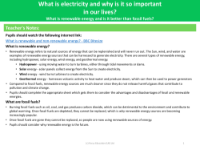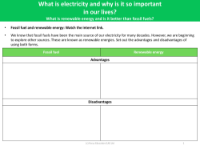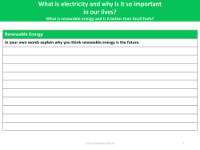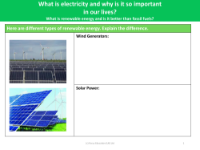What is renewable energy and is it better than fossil fuels? - Presentation
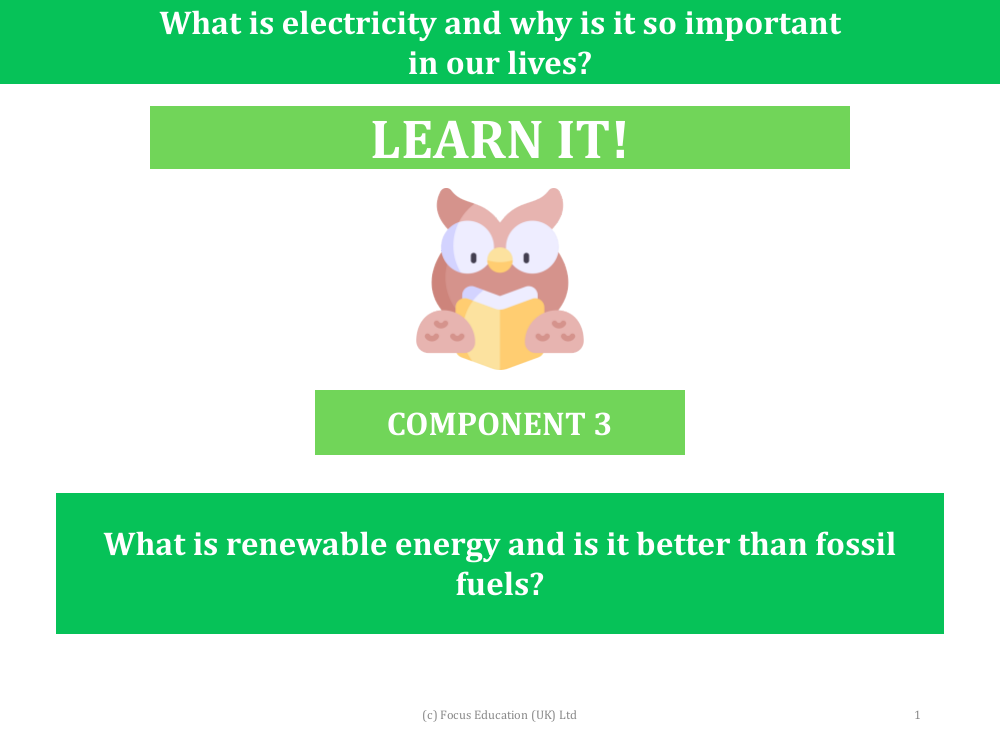
Science Resource Description
Renewable energy is derived from natural processes that are continuously replenished, such as sunlight, wind, rain, tides, and geothermal heat. Unlike fossil fuels, which are finite and emit harmful gases when burned, renewable energy sources are sustainable and have a minimal environmental impact. This presentation explores the various forms of renewable energy, such as hydropower, which utilises the motion of water to generate electricity; solar energy, where solar panels convert sunlight into electrical power; wind energy, produced by wind turbines; and geothermal energy, which taps into volcanic activity to heat water and produce steam for electricity generation. The advantages of renewable energy over fossil fuels include their inexhaustibility and the fact that they contribute far less to pollution and climate change.
The discussion also addresses the importance of electricity in our lives and the need to transition from fossil fuels to renewable sources. Fossil fuels, including oil, coal, and gas, release carbon dioxide when burned, contributing significantly to environmental degradation and global warming. As these resources are non-renewable and will eventually run out, renewable energy is increasingly seen as the future. The presentation encourages pupils to weigh the advantages and disadvantages of both fossil fuels and renewable energy. Additionally, it prompts learners to articulate in their own words why renewable energy is considered the future and to explain the differences between various types of renewable energy, such as wind generators and solar power.

